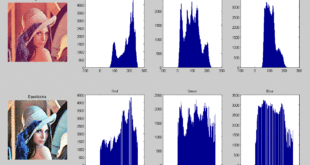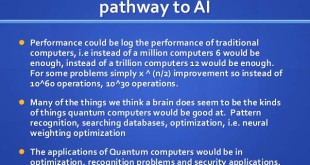In today’s rapidly evolving digital landscape, where software forms the backbone of our interconnected world, safeguarding critical infrastructure and software systems has become paramount. While this code facilitates modern life and drives productivity, it simultaneously creates an expanding attack surface for malicious actors.
As cyber threats continue to escalate, organizations and governments worldwide are increasingly vulnerable to malicious actors. However, the cybersecurity dilemma can be addressed through recent technological advancements. Over the past decade, we’ve witnessed the emergence of promising AI-enabled capabilities. When harnessed responsibly, this technology holds significant potential to address critical societal challenges, notably cybersecurity.
Recognizing this urgent need, the Defense Advanced Research Projects Agency (DARPA) has launched the AI Cyber Challenge (AIxCC) – a groundbreaking competition designed to harness the power of artificial intelligence (AI) and cybersecurity to enhance the security of the nation’s most critical software.
AIxCC: Where Innovation Meets Cybersecurity
At the prestigious Black Hat USA 2023 event, DARPA issued a clarion call to the brightest minds in computer science, AI, and software development to participate in the AI Cyber Challenge. This two-year competition seeks to foster innovation at the convergence of AI and cybersecurity, ushering in a new era of cybersecurity tools.
AIxCC tasks participants with the creation of innovative AI systems to fortify this critical code, offering a total of $18.5 million in prizes to the teams that deliver the most robust solutions. To nurture entrepreneurial innovation, DARPA is ready to provide funding of up to $1 million to seven small businesses, enabling their participation in the competition’s initial phase.
Why the Urgency?
In an age where software underpins every facet of our lives, from financial systems to public utilities, the potential vulnerabilities cannot be overstated. As technology drives productivity and modern life itself, it also expands the attack surface for cyber adversaries. Critical infrastructure, in particular, stands out as an attractive target for malicious cyber actors, primarily due to the scarcity of tools capable of securing these systems at scale.
Recent years have underscored the profound threats posed to society by these malicious actors. These challenges have laid bare the vast expanse that cyber defenders must shield from cyber threats. However, amidst these vulnerabilities, recent technological advancements offer a glimmer of hope.
AIxCС: Forging a Path to Cybersecurity
Currently, identifying and fixing vulnerabilities in software relies on experts who have specialized knowledge. They investigate and address these issues manually, which can be time-consuming and sometimes leads to mistakes. However, over the years, there have been developments in tools and methods for automatic vulnerability discovery and remediation (AVD&R). For instance, the use of Artificial Intelligence (AI) and Machine Learning (ML), especially Large Language Models (LLMs), shows promise in taking AVD&R to the next level. These LLMs can use neural networks and deep learning to reduce false alarms and provide more accurate tools, minimizing the need for human intervention. By combining AI and symbolic reasoning, they can learn new patterns of vulnerabilities, far surpassing current capabilities.
Moreover, they can automatically generate code fixes at scale. For example, CodePilot has demonstrated the ability to write code with minimal human input, and ChatGPT can identify and repair certain vulnerabilities effectively. These advancements are laying the foundation for innovative approaches in AVD&R, making the process more efficient. They can also improve collaboration between humans and computers in addressing software vulnerabilities, reducing the challenges currently faced in using existing tools.
AIxCC represents a pioneering collaboration led by DARPA, bringing together top AI companies. The goal is to harness AI-driven systems to tackle one of society’s most pressing challenges: cybersecurity. Over the past decade, promising AI-enabled capabilities have emerged, offering substantial potential when deployed responsibly. These technologies can play a pivotal role in addressing critical cybersecurity issues by automatically defending vital software at scale, significantly bolstering national and global cybersecurity efforts.
Collaborations
AIxCC represents a collaboration of epic proportions, uniting renowned AI companies with DARPA to provide competitors access to cutting-edge technology. Industry leaders such as Anthropic, Google, Microsoft, and OpenAI are joining forces with DARPA to empower contestants in the development of state-of-the-art cybersecurity systems.
Moreover, AIxCC has forged a close partnership with the Open Source Security Foundation (OpenSSF), a project under the Linux Foundation’s umbrella. OpenSSF will act as a guiding force for teams, aiding them in crafting AI systems capable of tackling crucial cybersecurity challenges, including the protection of critical infrastructure and securing software supply chains. Notably, most of the software, and consequently the code requiring protection, is open-source. Often crafted by community-driven volunteers, open-source software constitutes the backbone of code running on critical infrastructure across the United States, encompassing sectors like electricity and telecommunications.
AI Cyber Challenge Schedule
The AIxCC competition offers two participation tracks: the Funded Track and the Open Track. In the Funded Track, competitors will be chosen from proposals submitted to a Small Business Innovation Research solicitation, with up to seven small businesses receiving funding. On the Open Track, competitors will register directly with DARPA through the competition website and proceed without DARPA funding.
Both tracks will feature a qualifying event during the semifinal phase. The top-scoring teams (up to 20) from this phase will advance to the semifinal competition. Among these, the top performers (up to five) will receive monetary prizes and progress to the final phase. The three highest-scoring competitors in the final competition will secure additional monetary prizes.
AIxCC boasts collaboration with leading AI companies, including Anthropic, Google, Microsoft, and OpenAI, which will provide participants access to their cutting-edge technology and expertise. Additionally, the Open Source Security Foundation (OpenSSF), a Linux Foundation project, will serve as a challenge advisor. Its role is to guide teams in developing AI systems capable of addressing critical cybersecurity concerns, such as safeguarding critical infrastructure and software supply chains.
Crucially, AIxCC competitions will be hosted at DEF CON, with additional events at Black Hat USA. Both events are globally recognized cybersecurity conferences that draw tens of thousands of experts, practitioners, and observers from across the globe to Las Vegas every August. The competition will span two phases: the semifinal phase and the final phase, both taking place in Las Vegas in 2024 and 2025.
The Potential of AIxCC
In the quest for success, AIxCC has the potential to yield the next generation of cutting-edge cybersecurity tools. If AIxCC proves successful, it will not only usher in the next era of cybersecurity tools but also underscore the profound societal benefits that AI can offer by protecting our critical digital infrastructure. The competition signifies a significant step forward in safeguarding the foundations of our digital world and defending our nation’s most critical software. Beyond that, it serves as an exemplar of how AI can be harnessed for the greater good by fortifying society’s critical foundations.
 International Defense Security & Technology Your trusted Source for News, Research and Analysis
International Defense Security & Technology Your trusted Source for News, Research and Analysis

